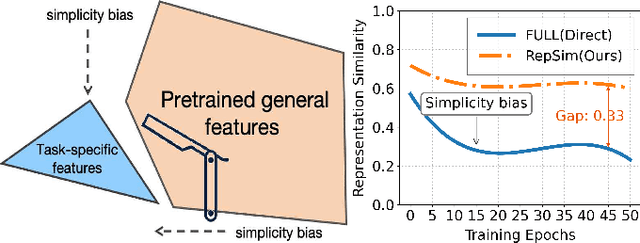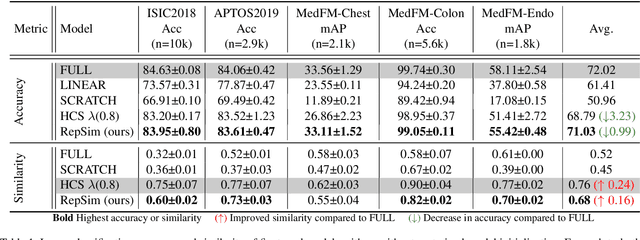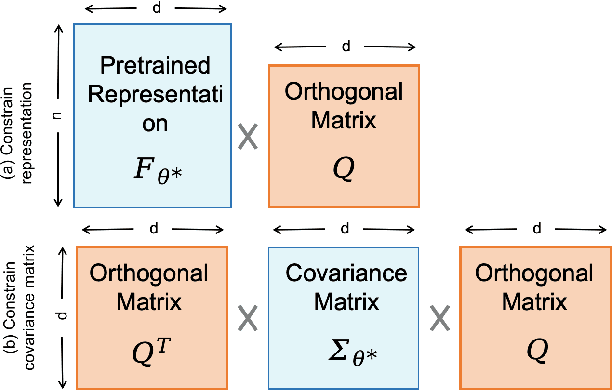Keeping Representation Similarity in Finetuning for Medical Image Analysis
Paper and Code
Mar 10, 2025



Foundation models pretrained on large-scale natural images have been widely used to adapt to medical image analysis through finetuning. This is largely attributed to pretrained representations capturing universal, robust, and generalizable features, which can be reutilized by downstream tasks. However, these representations are later found to gradually vanish during finetuning, accompanied by a degradation of foundation model's original abilities, e.g., generalizability. In this paper, we argue that pretrained representations can be well preserved while still effectively adapting to downstream tasks. We study this by proposing a new finetuning method RepSim, which minimizes the distance between pretrained and finetuned representations via constraining learnable orthogonal manifold based on similarity invariance. Compared to standard finetuning methods, e.g., full finetuning, our method improves representation similarity by over 30% while maintaining competitive accuracy, and reduces sharpness by 42% across five medical image classification datasets. The code will be released.
 Add to Chrome
Add to Chrome Add to Firefox
Add to Firefox Add to Edge
Add to Edge